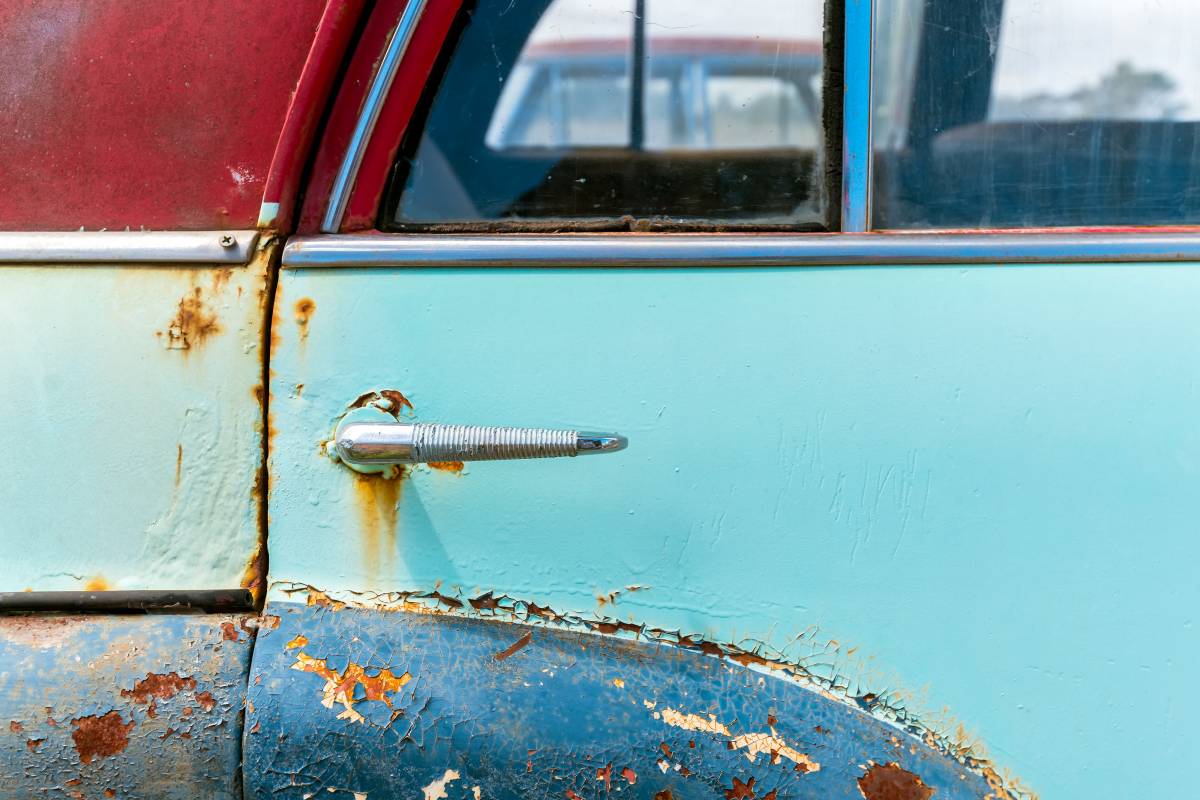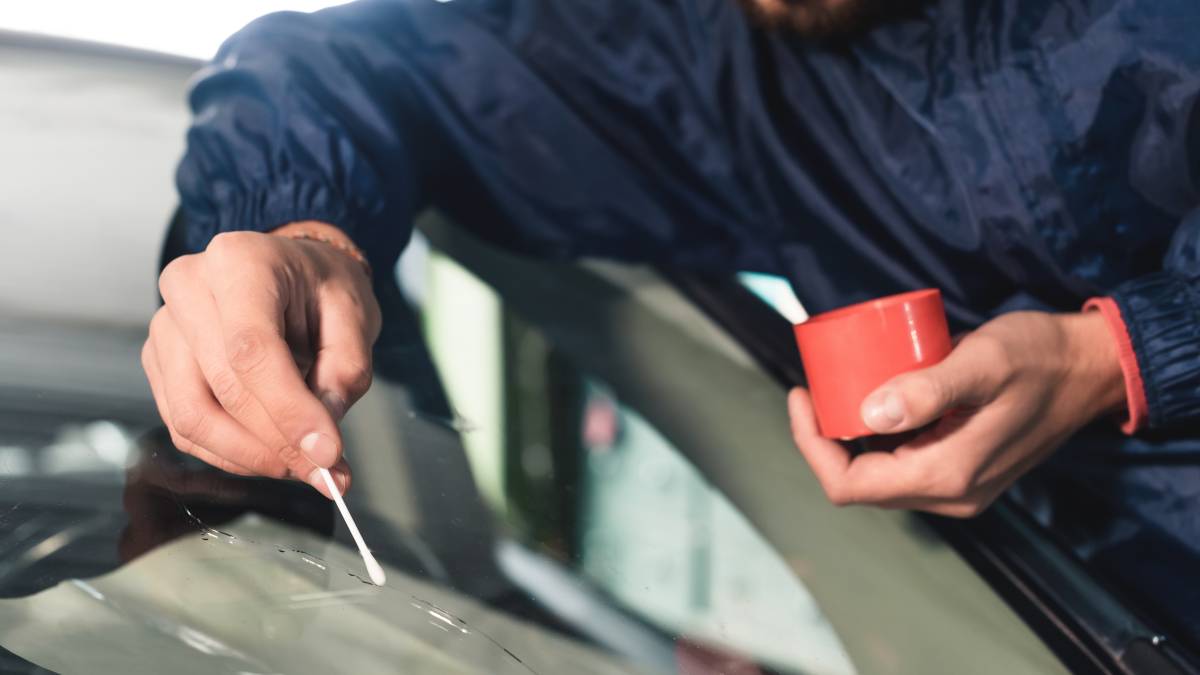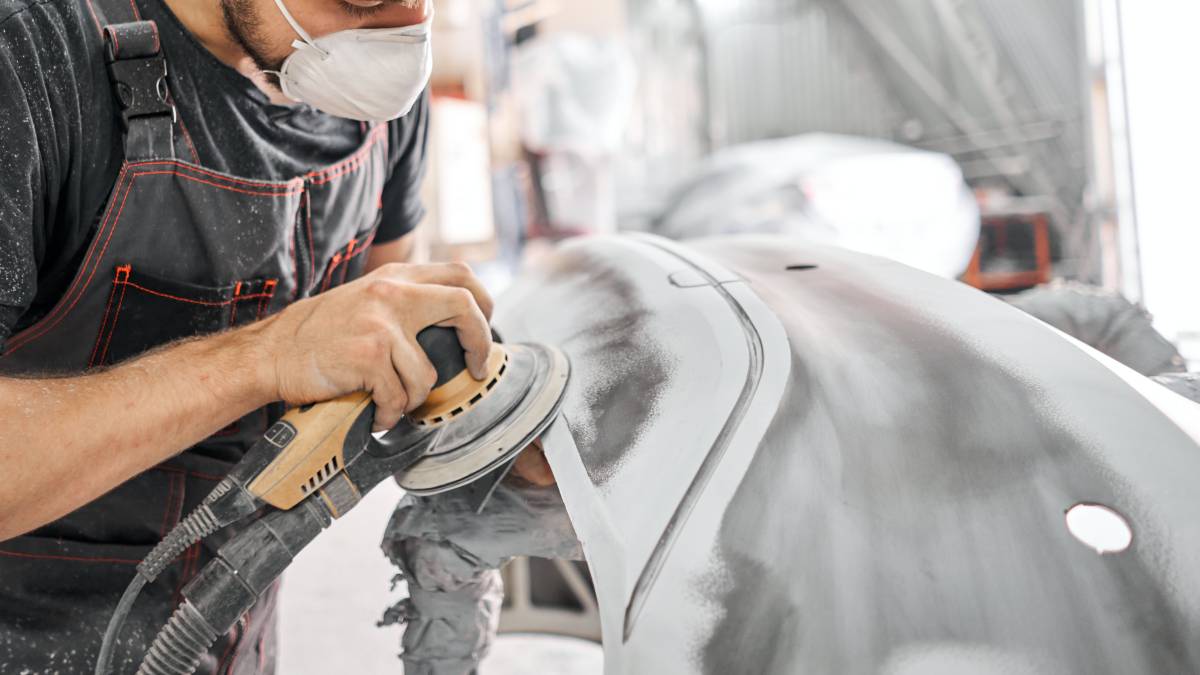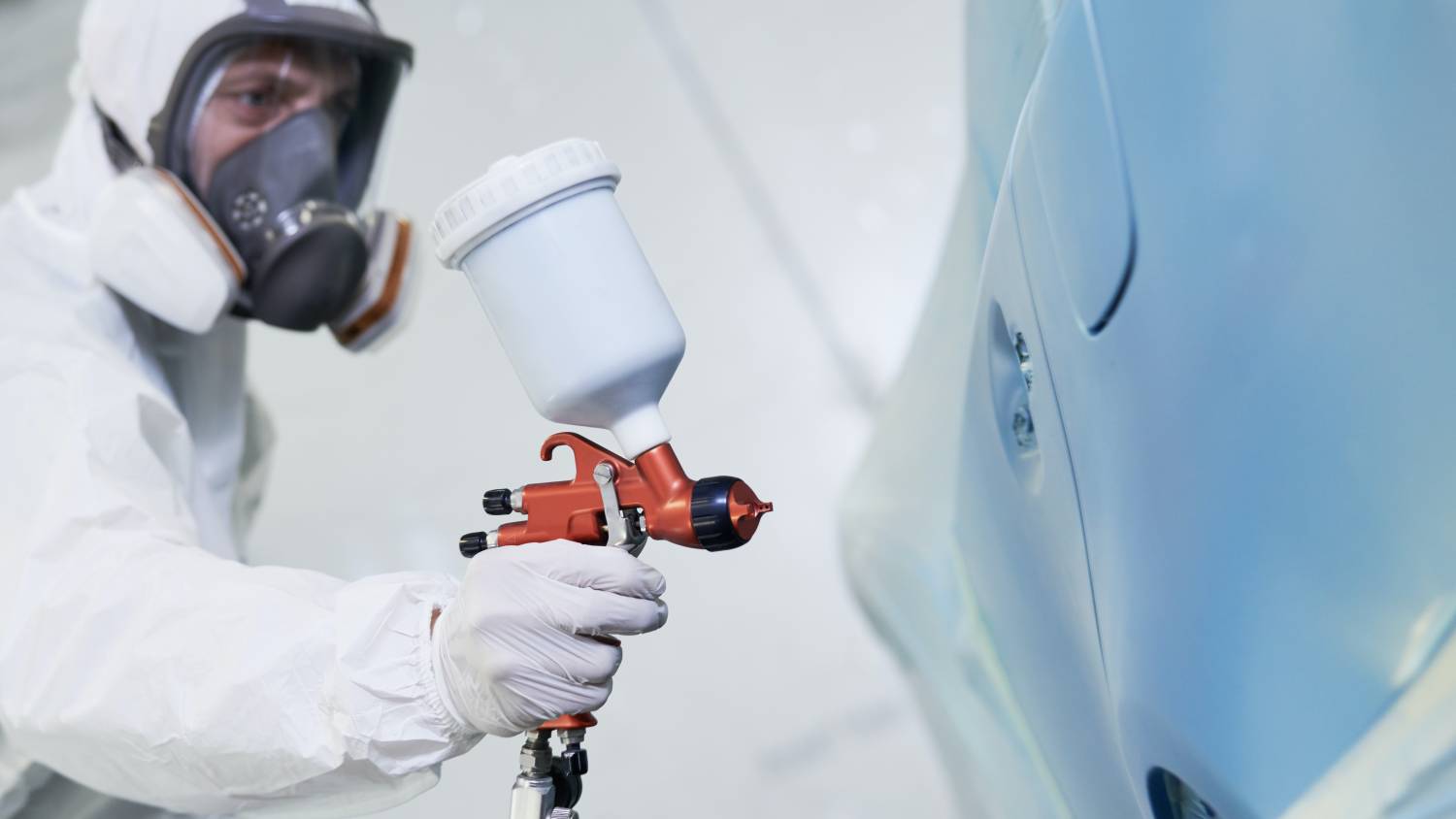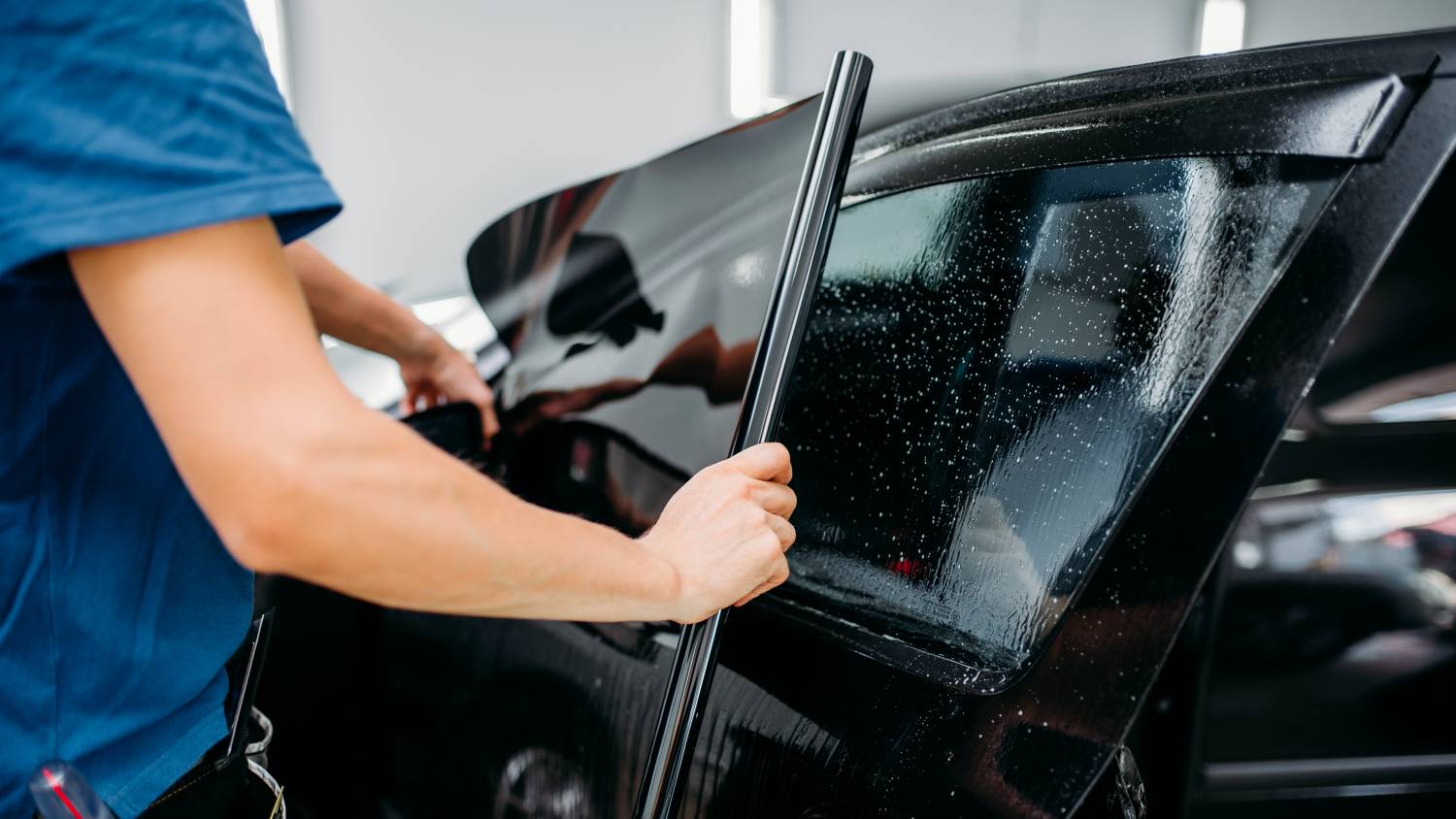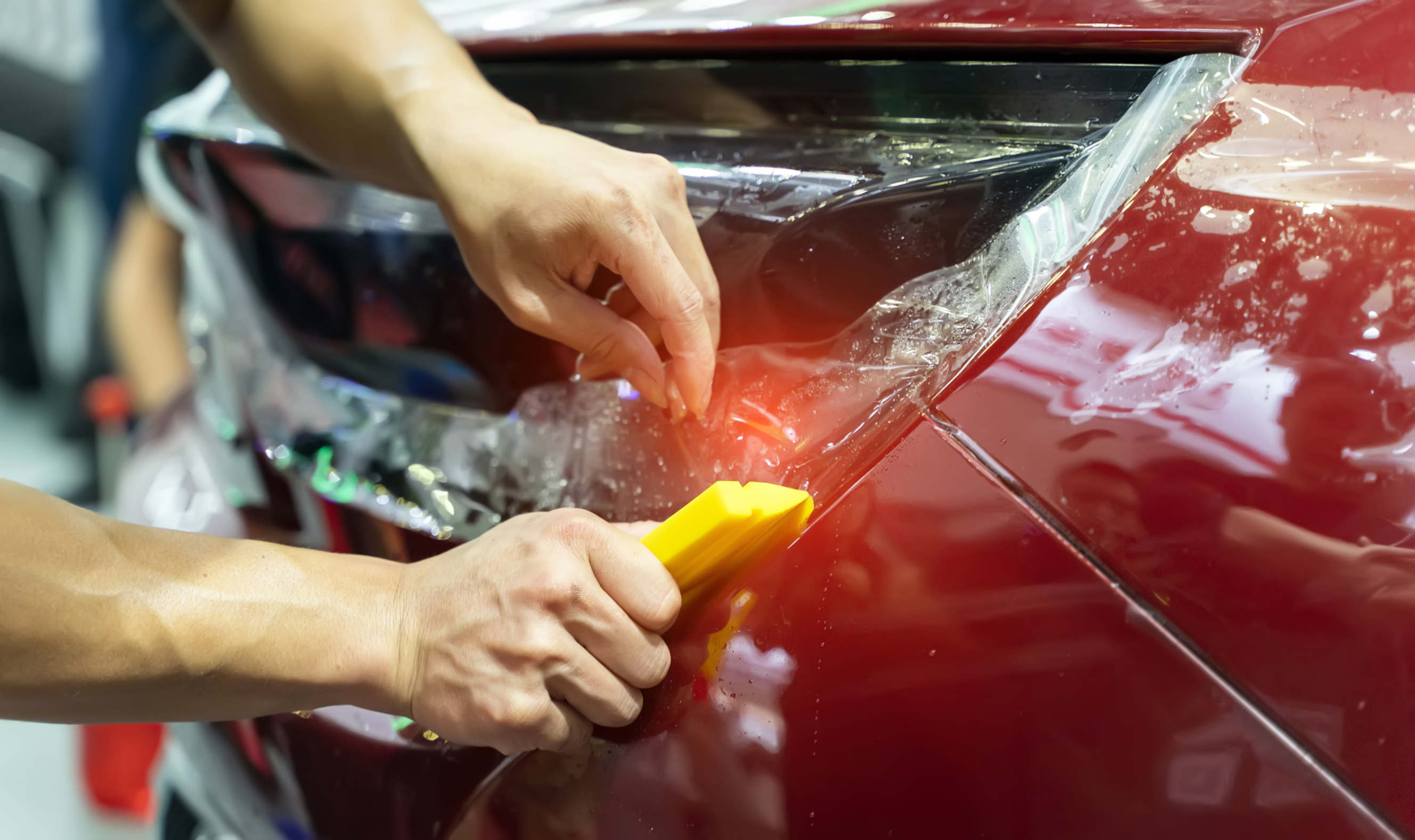- Home/
- Comparisons/
- Car Wrapping/
- Car Wrap vs Paint
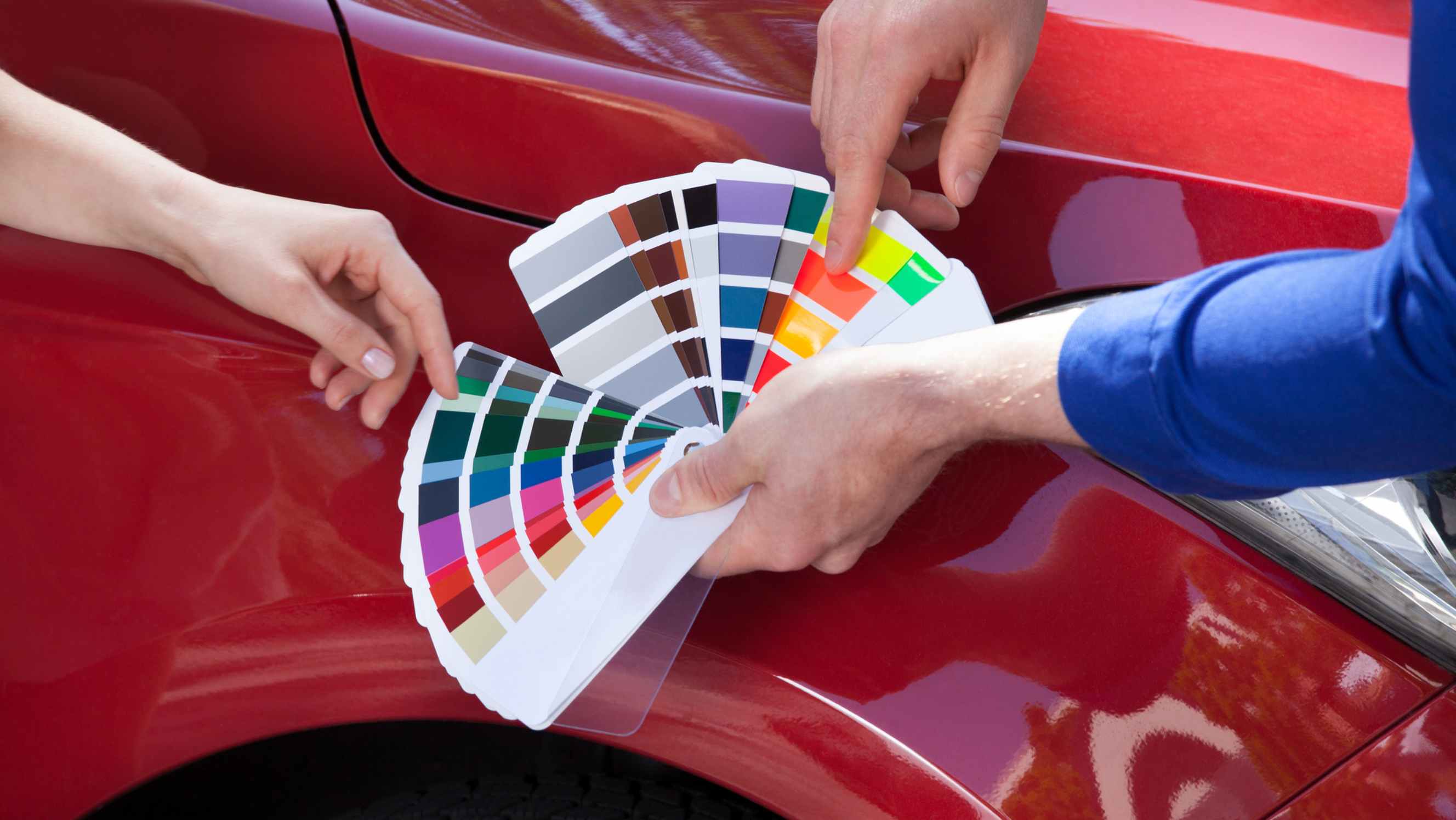
Car wrap vs paint: Which best protects your vehicle?
Comparing car wrap and car paint based on car protection, durability, application process, and more.
Hire a car wrap or paint expertPublished on

Written by Cielo B.
Staff Writer
Read more about our contributor
Key Facts
- Car wrap, or vinyl car wrapping, uses a thin PVC film with UV absorbers, stabilisers, adhesive, and a laminated coating to customise and protect a car’s exterior.
- Car paint is a protective coating that shields a car’s exterior from rust, corrosion, sunlight, and other environmental elements. It consists of pigment for colour, a binder for adhesion, and a thinner for a smooth finish.
No matter how durable your car’s paint job is, it can still lose its shine over time. You could use car wax or polish to maintain its shine and gloss, but these car detailing products don’t last long, as environmental factors such as frequent rains and sunlight exposure can cause a car’s exterior to look dull and faded.
For a more permanent solution, you might want to consider getting a new car paint job or wrap instead. This car wrap vs paint guide will help you easily determine which service is the best choice for your vehicle.
What is a car wrap?
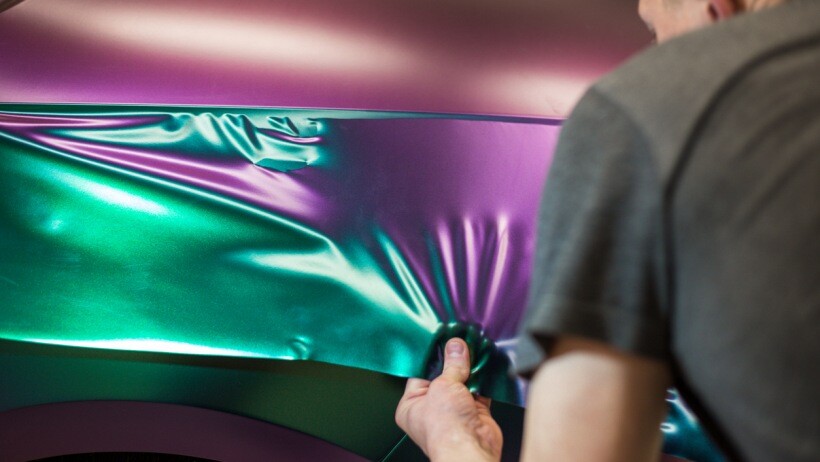 A person applying a colour-shifting wrap to a car for a unique finish (Source: iStock)
A person applying a colour-shifting wrap to a car for a unique finish (Source: iStock)
A car wrap, also known as vinyl car wrapping, is an auto customisation service that uses a thin film made of Polyvinyl Chloride (PVC) to cover a car’s exterior. Although this wrap is as thin as a piece of paper, it includes various additives like stabilisers and UV absorbers, making it durable and flexible. It’s also treated with a special adhesive for easier application and a laminated coating to provide extra protection.
A car wrap comes in many types, including:
Clear car wrap — a transparent film for car paint protection and preservation.
Standard coloured films — offer a wide range of colours and finishes.
Metallic & pearlescent car wraps — add a luxurious look and reflective finish.
Colour-shifting car wraps — change colour depending on the angle and lighting.
Textured car wraps — imitate the look of carbon fibre, brushed metal and leather.
Spray car wrap — a liquid vinyl coating applied to a vehicle's surface using a spray gun.
What is car paint?
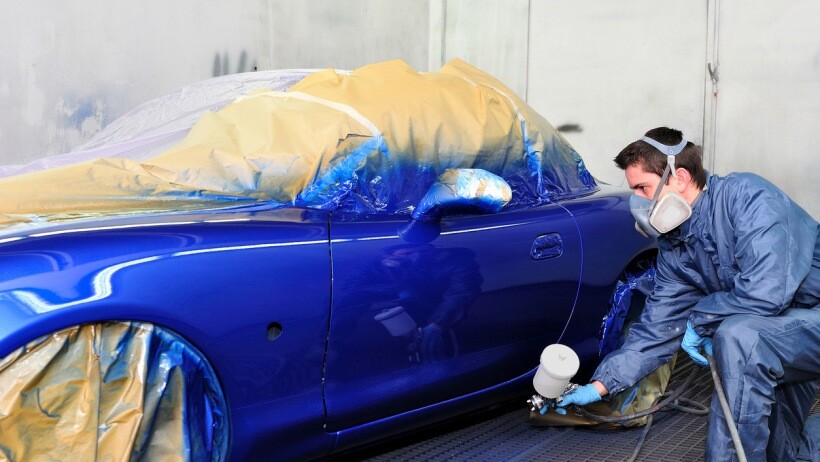 A technician painting a blue car for a sleek, durable finish (Source: iStock)
A technician painting a blue car for a sleek, durable finish (Source: iStock)
Car paint is a protective coating that shields the car’s exterior from rust, corrosion, sunlight exposure, and other environmental elements. Its composition includes pigment particles for adding colour, a binder for the pigment particles to adhere to the car’s exterior, and a thinner for an even finish.
Like a car wrap, vehicle paint comes in many types:
Solid car paint — basic auto paint available in a wide range of colours
Metallic car paint — contains aluminium powder to give cars a reflective finish
Pearlescent car paint — contains ceramic crystals for a shiny, premium finish
Matte car paint — non-reflective finish found in many luxury cars
Colour-changing paint — advanced auto paint with high-end custom colour options
Car vinyl wrapping vs painting: Which is the better choice?
Here’s a more in-depth guide on car vinyl wrapping vs painting that covers each of their pros and cons, helping you choose the right one for your car’s needs.
In terms of car bodywork protection
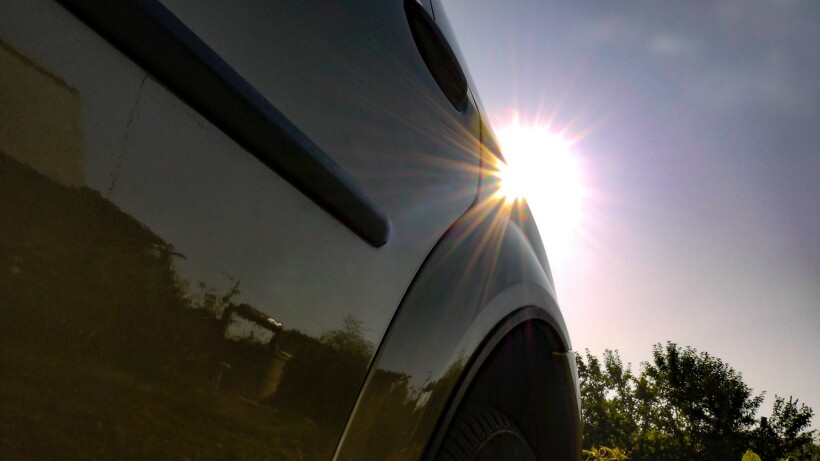 A protective car paint job enhances durability and shine against harsh sunlight (Source: iStock)
A protective car paint job enhances durability and shine against harsh sunlight (Source: iStock)
Car paint offers more bodywork protection than car wrap since it involves applying many layers of paint:
A primer or undercoat, which prepares and smoothens your car’s surface;
A base coat, which is the coloured paint;
A clear coat, which acts as a protective finish. It’s the most important layer since it acts as your car’s last defence against environmental damage, sealing the metal bodywork from moisture.
Moreover, modern automotive paints are formulated with UV inhibitors, helping protect the vehicle from sun damage. Although some car wraps also come with UV-resistant coatings, this can only be effective if installed correctly. Water and moisture can get trapped underneath when it rains, causing rust to form.
In terms of durability and longevity
So, how long does a vehicle wrap last? Approximately two to three years. High-quality ones can last up to a decade with proper installation and maintenance. However, when it comes to longevity and durability, car wrapping pales in comparison with car painting because car paint can last a lifetime.
Although car paint can also fade over time, the clear coat will be the first to be stripped off, not the coloured paint underneath. Regular waxing and touch-ups can easily mitigate these issues.
Another downside of car wrap is that it can make vehicle washing more tedious. You’ll have to avoid using pressure wash since it can cause the wrap to peel off and loosen its adhesive, further reducing its longevity. Automated car washing should also be avoided because they usually use abrasive brushes that can cause the wrap to bubble or peel.
In terms of customisation
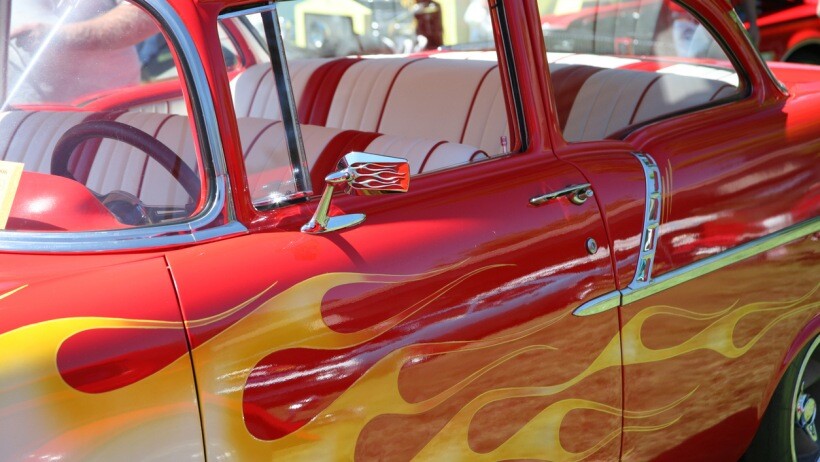 Vintage hot rod with custom flame paint job (Source: iStock)
Vintage hot rod with custom flame paint job (Source: iStock)
Car wrapping offers more customisation since it uses digital printing to replicate custom graphics, patterns, and other intricate designs. Although this is also possible with car painting, using auto paint to add detailed graphics can be difficult and more expensive.
Some vehicle wraps can even imitate different textures like brushed metal and leather. Plus, you can do partial wrapping, which means wrapping specific vehicle parts like the roof, hood or side panels to add interesting accents.
The biggest advantage of car wrapping is its reversibility. Simply put, you may have the wrap removed without damaging the original paint. This can be beneficial if you frequently want to change and update the appearance of a car. On the other hand, car painting offers a permanent change in appearance that cannot be reversed easily.
In terms of the application process
Most of the time, applying a car wrap only takes two to three days, while painting lasts for more than a week. Car painting is more time-consuming because it requires so many layers of paint. You have to wait for each layer to dry before applying another one.
Moreover, car paint requires a more tedious prep job. You’ll have to smoothen the car’s surface first with a sandpaper to remove old paint and rust, and properly apply a primer right after to ensure the coloured paint sticks well.
Car wrapping also requires some preparation, like spotting and repairing dents, scratches, and other car blemishes and imperfections. If your car is properly maintained, then this wouldn’t be much of a problem. You just have to make sure to install car wrap in a clean and controlled environment to prevent dust from settling under the wrap.
When it comes to the actual application, car wrapping is easier as you only need a pair of scissors to cut the film and a squeegee to press out air bubbles and wrinkles. However, leaving the job to a professional remains the better choice to avoid any accidental damage to your car.
In terms of maintenance
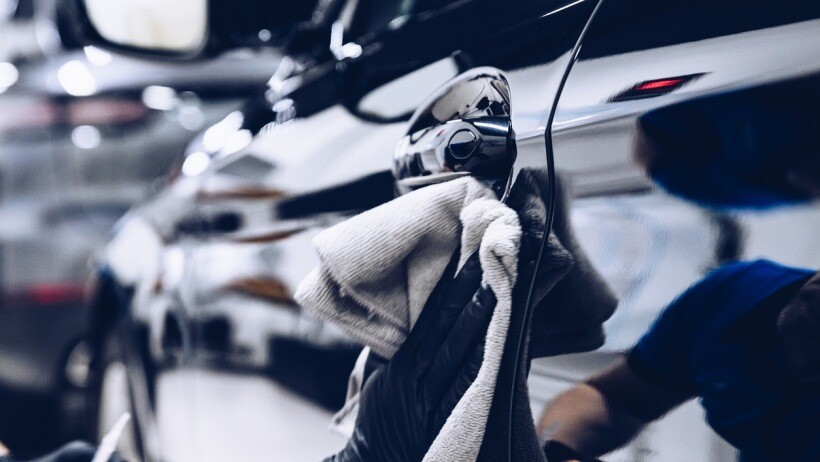 Detailing a vehicle's chrome trim (Source: iStock)
Detailing a vehicle's chrome trim (Source: iStock)
Both car paint and wrap require regular cleaning. Ideally, you should wash your car every two weeks to maintain its gloss and shine. Just make sure not to use car products with harsh chemicals to avoid damaging the paint or wrap. Instead, look for a mild car soap and rinse with water. Also, avoid automatic car wash services because most use abrasive brushes that can cause car scratches.
You must also consider the possible repairs and touch-ups needed to maintain a smooth car exterior surface. For car wraps, watch out for small tears or lifting edges. If not repaired, these might lead to significant damage, requiring you to completely replace the entire wrap.
Meanwhile, chips and scratches might appear over time in car painting, requiring immediate touch-ups like car polishing or repainting with matching paint. You might even need a professional to repaint the entire car if there’s an extensive damage.
In terms of cost
Car wraps are more affordable upfront, with the cost to vinyl wrap a car ranging from £300 to £5,100. This includes the price of the film material and the labour required to apply the vinyl film. High-end wraps with specialised finishes, like colour-shifting wraps, can be more expensive.
However, you also need to consider that car wraps need replacement every few years. If you don’t want to change your car’s look frequently and want a permanent design, car painting is a much better option. Although the cost of vehicle painting is much more expensive, with prices ranging from £800 to £10,000, it’s worth availing due to its longevity and durability.
Achieve professional car wrap or paint with Airtasker
Have you already decided which between a car wrap and car paint is better? If that’s the case, it’s time to look for professionals to help provide these services.
Airtasker, you can find car detailing professionals who can help with your car wrapping and painting needs. They have the expertise and experience in working with various car finishes and materials, so rest assured, they can help enhance your car’s appearance significantly. You can check out our car detailing cost guide to get an idea of how much their services cost in the UK
Learn more about our contributors

Written by Cielo B.
Staff Writer
Cielo is an experienced content writer who has explored various industries throughout her career. Her expertise, founded on a degree in journalism, includes writing about automotive and vehicle maintenance. She’s an avid car enthusiast who loves driving through lush rural areas with her old (but reliable) manual car. Cielo also covers topics like dressmaking, tailoring, and photography since she is a passionate cosplayer who enjoys dressing up as her beloved anime characters.
Car wrap vs paint
| Car Wrap |
Car Paint |
|
Car Bodywork Protection |
Limited protection; UV absorbers, but can cause rust with improper application |
Superior protection; multiple layers including primer and clear coat |
| Durability and Longevity |
Lasts two to three years, but high-quality wraps can last up to a decade; prone to peeling |
Can last a lifetime; requires waxing and touch-ups |
| Customisation |
Highly customisable with digital prints, textures, partial wraps |
Limited to solid colours and simple designs |
Application Process |
Takes two to three days; simpler prep and application |
Takes over a week; requires extensive prep and multiple layers |
| Maintenance |
Regular cleaning needed; avoid pressure washing and automatic car washes | Regular cleaning; touch-ups for chips and scratches |
| Cost |
£300 - £5,100; more affordable upfront, but needs replacement |
£1,000 - £10,000; higher upfront cost, more durable in the long term |
FAQs on car wrap and car paint
Car wrapping is only temporary since the wrap can start to degrade over time. It’s also not suitable for vehicles with a damaged exterior since the wrap won’t adhere well on uneven and rusted surfaces.
The cost of a full car respray in the UK ranges from £1,000 to £4,000, with some services reaching up to £10,000 for luxury cars. Bear in mind, though, that this is just a rough estimate. Car respray costs depend on the size or type of your vehicle, the repair work needed, the complexity of the car design, the paint colour, and the location of the car body shop.
Most car wraps should be replaced every three to five years. However, you must also consider other factors, such as the type of wrap used, the environmental conditions the car is frequently exposed to, and the maintenance you apply to it.
Find car wrapping experts, fast
Post a task
Related articles
Related price pages
